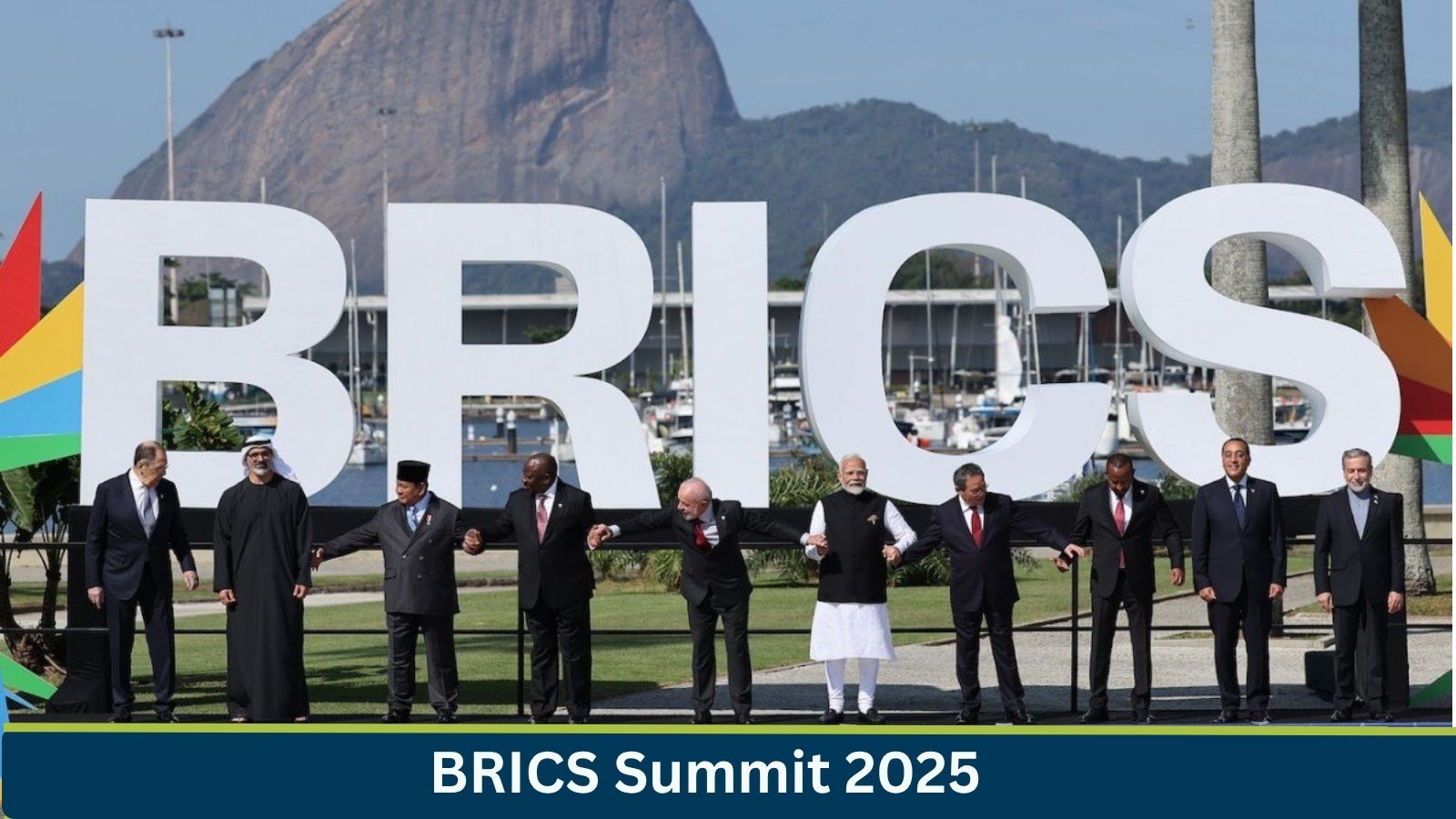The BRICS 2025 Summit was held this week in Rio de Janeiro. Brazil hosted the meeting at a time when global tensions are high. The gathering brought together major emerging economies to discuss shared concerns.
Set against a complex backdrop of global crises—from the Gaza conflict and Iran-Israel tensions to renewed U.S. tariff threats under President Trump, the summit is opting for strategic restraint over confrontation. The bloc expressed “serious concern” over unilateral tariff measures but deliberately avoided naming the U.S., reflecting Brazil’s intent to keep the proceedings “technical, not tactical.”
The final declaration echoed this strategic ambiguity:
• On Gaza, it denounced attacks on humanitarian infrastructure but avoided the term “genocide”.
• On Iran, it criticized strikes on nuclear sites without naming Israel or the U.S.
• On Ukraine, it backed peace efforts without criticizing Russia.
India used the platform to reaffirm its counterterrorism stance, referencing the Pahalgam attack and calling for zero tolerance.
Shifting Alignments Within the Bloc
Brazil’s chairmanship focused on six agenda pillars: global health cooperation, climate change, trade, peace and security, AI governance, and institutional reform
Notably, BRICS expansion last year added complexity to internal alignment. Absences of key figures like Xi Jinping and Vladimir Putin as well as the unclear participation of new entrants like Iran, Egypt, and Saudi Arabia reflect the growing challenge of cohesion within the enlarged grouping.
US Response: Sharp Escalation on Trade
U.S. President Trump issued a clear warning stating “Any country aligning themselves with the anti-American policies of BRICS will be charged an additional 10% tariff. There will be no exceptions….”
The U.S. had set a deadline of 09 July for bilateral trade deals. With limited progress, the administration confirmed that new tariffs would apply from 1 August. Letters have been sent to 10–15 countries, outlining revised tariff rates.
Trump has criticised BRICS for pushing currency reforms. In 2024, he warned of 100% tariffs if the bloc moved ahead with a joint currency.
Despite growing calls for an alternate financial system within the developing countries, Brazil has firmly denied any move toward creating a BRICS currency.
The Bigger Picture
The BRICS 2025 Summit reflects a world in flux. Emerging economies are asserting greater influence, even as global trade is increasingly shaped by unilateral decisions and competing interests. The true challenge lies in reconciling national ambitions with the need for shared stability and cooperation.
𝐃𝐢𝐬𝐜𝐥𝐚𝐢𝐦𝐞𝐫: The article has reference to open sources including Reuters, BBC and the Print.
MitKat helps organisations navigate uncertain times by providing comprehensive insights about the evolving risk landscape. We offer various services including Risk consulting and Security Design, Protective Services, and cyber security services which ensure organisations become Risk Intelligent. Our AI-powered operational risk monitoring tool, datasurfr combined with expert insight enables companies to stay abreast of evolving operational risks and emerging developments.






